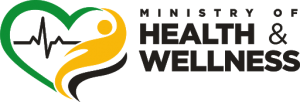Overview
Jamaica increased public access to ARV treatment with the support of the Global Fund to Fight AIDS, Tuberculosis and Malaria in September 2004. Additionally, Global Fund resources enabled the purchase of diagnostic and monitoring equipment (CD4, viral load etc.) and support to improve adherence to treatment.
There has been rapid development and implementation of an extensive system of care, which includes screening and diagnostic services, counselling, psychological and social support, provision of specialized clinical care and improved access to antiretroviral medications. These services are also offered in the provision of treatment in the Prevention of Mother-to-Child Transmission programme, the provision of care and support to Orphans and Vulnerable Children (OVC) as well as targeted outreach testing to unearth new positives and to provide linkages to relevant treatment, care and support services.
Programmes
1. Prevention of Mother-to-Child Transmission (PMTCT+)
In keeping with standard international guidelines, triple therapy is now to be offered to all HIV positive pregnant mothers, as a more viable option with regards to the patients’ long-term health.
As at March 31, 2009 over 5,600 persons were ever started on antiretroviral therapy which exceeded the GF Target. Facilitating this are nineteen treatment sites (paediatric and adult) across the island with trained team of providers in each facility.
The Prevention of Mother-to-Child Transmission (PMTCT+) Programme continues to make significant gains. Routine opt-out HIV testing of antenatal clinic attendees resulted in testing of over 90% of pregnant women. More than 90% of HIV-exposed infants received antireetrovirals to lower the risk of transmission of HIV. The transissoin rate of HIV from mother to child is estimated to be less than 10% coming from a baseline of 25%.
The major challenges to providing adequate access to health care services include the high proportion of infected individuals that do not know their HIV status; do not access antiretroviral (ARV) drugs or access care at a later stage of disease progression or do not adhere to the medication. Other challenges to access include continued stigma and discrimination that prevent many from getting tested, poor health-seeking behaviours and failure to disclose HIV status to partner(s).
2. Orphans made Vulnerable by HIV (OVC)
This programme consists of three major components:
- OVC Situational Analysis – This was a follow-up to the one done by the National AIDS Committee in 2005.
- Training – A two and a half (2 & ½) day training for approximately one hundred (100) health care workers in public and private children’s home including health education officers (HEOs) from the Ministry of Education (MOE) who assist OVCs in schools.
- Island Wide Mapping – A list was created of places that OVCs can go to access support services.
HIV Testing in Jamaica
Voluntary counselling and testing sites have been established in all major health centres with over 95% of relevant staff (Contact Investigators, Social Workers, Public Health Nurses, etc.) trained in VCT protocol. For screening of HIV in outreach settings, the National HIV/STI Programme (including the behaviour change communication teams in all the regional health authorities) uses either the “finger prick” test (Uni Gold brand) or the oral test (Ora Quick brand).
All sexually active persons should be offered an HIV test. Individuals at high risk should consider annual HIV testing (at the minimum); there should be reinforcement of risk reduction leading to safer sexual behaviour.
